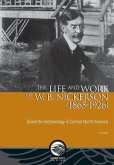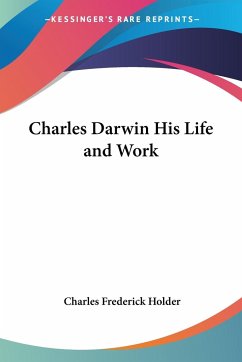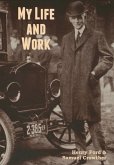My Life and Work is a classic autobiography of the great American business mogul, Henry Ford. Henry Ford (July 30, 1863 - April 7, 1947) was an American industrialist, the founder of the Ford Motor Company, and sponsor of the development of the assembly line technique of mass production. Although Ford did not invent the automobile or the assembly line, he developed and manufactured the first automobile that many middle class Americans could afford. This is his story in his own words. Although Ford did not invent the automobile or the assembly line,[1] he developed and manufactured the first automobile that many middle-class Americans could afford. In doing so, Ford converted the automobile from an expensive curiosity into a practical conveyance that would profoundly impact the landscape of the 20th century. His introduction of the Model T automobile revolutionized transportation and American industry. As the owner of the Ford Motor Company, he became one of the richest and best-known people in the world. He is credited with "Fordism": mass production of inexpensive goods coupled with high wages for workers. Ford had a global vision, with consumerism as the key to peace. His intense commitment to systematically lowering costs resulted in many technical and business innovations, including a franchise system that put dealerships throughout most of North America and in major cities on six continents. Ford left most of his vast wealth to the Ford Foundation and arranged for his family to control the company permanently. Ford was also widely known for his pacifism during the first years of World War I, and for promoting antisemitic content, including The Protocols of the Elders of Zion through his newspaper The Dearborn Independent and the book The International Jew. Henry Ford was born July 30, 1863, on a farm in Greenfield Township, Michigan.[2] His father, William Ford (1826-1905), was born in County Cork, Ireland, to a family that was originally from Somerset, England.[3] His mother, Mary Ford (née Litogot; 1839-1876), was born in Michigan as the youngest child of Belgian immigrants; her parents died when she was a child and she was adopted by neighbors, the O'Herns. Henry Ford's siblings were Margaret Ford (1867-1938); Jane Ford (c. 1868-1945); William Ford (1871-1917) and Robert Ford (1873-1934). His father gave him a pocket watch in his early teens. At 15, Ford dismantled and reassembled the timepieces of friends and neighbors dozens of times, gaining the reputation of a watch repairman.[4] At twenty, Ford walked four miles to their Episcopal church every Sunday.[5] Ford was devastated when his mother died in 1876. His father expected him to eventually take over the family farm, but he despised farm work. He later wrote, "I never had any particular love for the farm-it was the mother on the farm I loved."[6] In 1879, Ford left home to work as an apprentice machinist in Detroit, first with James F. Flower & Bros., and later with the Detroit Dry Dock Co. In 1882, he returned to Dearborn to work on the family farm, where he became adept at operating the Westinghouse portable steam engine. He was later hired by Westinghouse to service their steam engines. During this period Ford also studied bookkeeping at Goldsmith, Bryant & Stratton Business College in Detroit.
Hinweis: Dieser Artikel kann nur an eine deutsche Lieferadresse ausgeliefert werden.
Hinweis: Dieser Artikel kann nur an eine deutsche Lieferadresse ausgeliefert werden.








